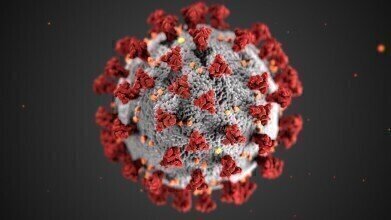News
Recent Developments in COVID-19 Research
Jul 01 2021
Since SARS-CoV-2 first appeared in December 2019, scientists around the world have been racing to find out more about the novel coronavirus. While the virus has claimed almost four million lives, new developments in COVID-19 research have offered hope to pandemic-stricken countries around the world. Below, we spotlight some of the most exciting new developments and answer some key questions about how science is fighting the virus.
How long does the COVID-19 vaccine last?
The COVID-19 vaccines are new, and scientists are still mapping long-term immunity timeframes. Some studies assert the two-dose Pfizer vaccine remains effective for at least six months, while others suggest immunity lasts significantly longer.
"We only have information for as long as the vaccines have been studied," explains Deborah Fuller, a vaccine researcher at the University of Washington. "We have to study the vaccinated population and start to see, at what point do people become vulnerable again to the virus?”
Can you get COVID after being fully vaccinated?
mRNA COVID-19 vaccines produced by Moderna and Pfizer offer impressive efficacy rates of 80% after the first dose and 90% after the second dose. No vaccine offers absolute protection, though all significantly reduce the risk of infection. Vaccines are also highly effective at preventing hospitalisation, with new research from Public Health England (PHE) suggesting the AstraZeneca vaccine offers 92% efficiency against hospitalisation for the Delta variant and 86% for the Alpha variant.
Are our vaccines effective against new COVID mutations?
New SARS-CoV-2 mutations like the Alpha, Beta, Gamma and Delta strains have sparked concerns the vaccines may not be effective against genetic variants. While studies suggest there may be some level of protection, experts predict booster shots could become an effective way of preventing the emergence of new variants.
What are the latest methods for treating COVID?
Beyond vaccines, health experts have endorsed several treatments designed to prevent the risk of hospitalisation after contracting COVID-19. The FDA has authorized the use of monoclonal antibody treatments to ease symptoms, while the National Institutes of Health (NIH) recommends dexamethasone. Other research suggests Vitamin D could help protect against initial infection. Like the flu, health experts stress the importance of rest and hydration when recovering from a respiratory illness like COVID-19.
From universities to state-of-the-art research institutions, scientists are continually exploring new ways to diagnose, treat and prevent COVID-19. Find out more about the latest breakthroughs from Nanyang Technological University in Singapore in ‘New Diagnostic Test Can Detect SARS-CoV-2 even After Mutation.’
Digital Edition
Lab Asia Dec 2025
December 2025
Chromatography Articles- Cutting-edge sample preparation tools help laboratories to stay ahead of the curveMass Spectrometry & Spectroscopy Articles- Unlocking the complexity of metabolomics: Pushi...
View all digital editions
Events
Jan 21 2026 Tokyo, Japan
Jan 28 2026 Tokyo, Japan
Jan 29 2026 New Delhi, India
Feb 07 2026 Boston, MA, USA
Asia Pharma Expo/Asia Lab Expo
Feb 12 2026 Dhaka, Bangladesh



















